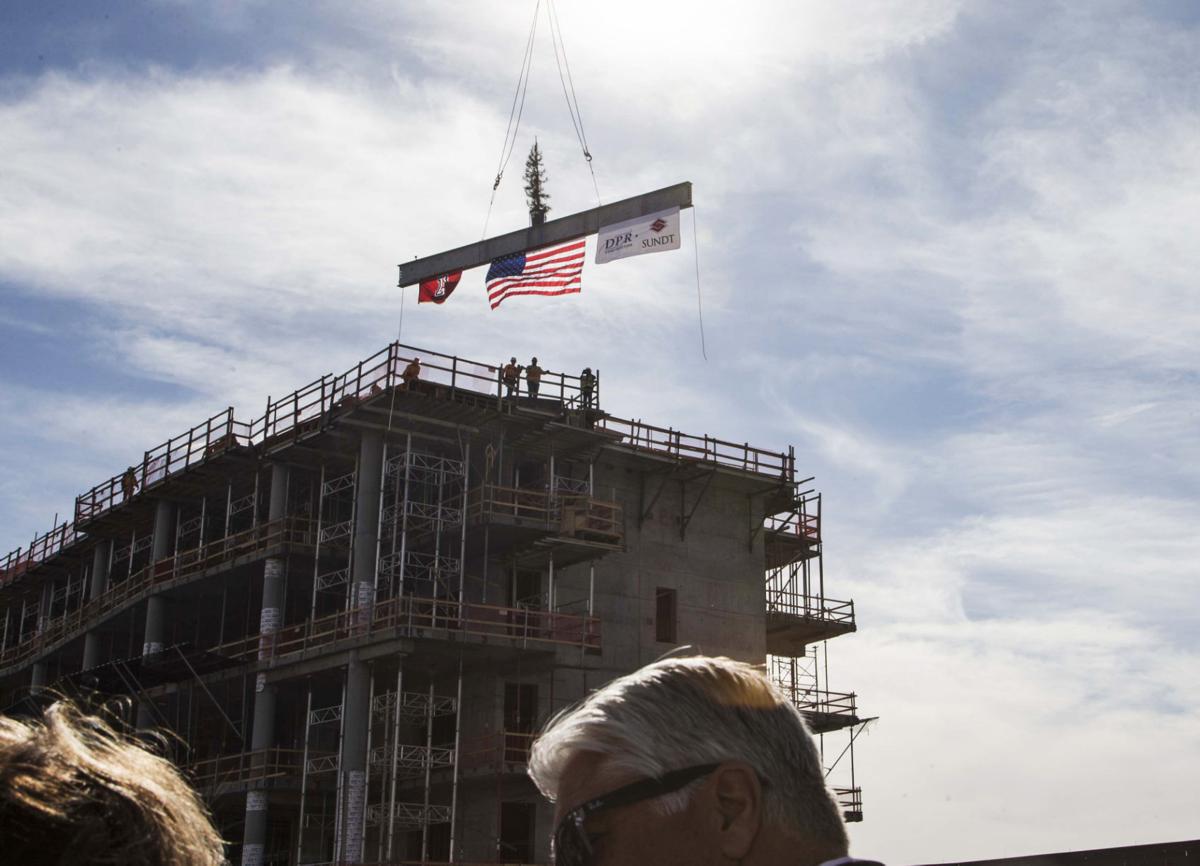The University of Arizona reached a construction milestone this week on a $136 million biosciences-research building Phoenix leaders say will bring innovation and jobs to downtown Phoenix.
Dozens of city and university leaders cheered Thursday as a crane placed the final beam on the 10-story Biomedical Sciences Partnership Building. The UA expects the research facility near Seventh and Fillmore streets to open early next year.
The steel, concrete and copper structure will be the next addition to the Phoenix Biomedical Campus, part of an initiative to bring innovative research and industry to about 30 acres of city land downtown. Arizona’s three state universities all have programs on the campus.
The Arizona Board of Regents approved funding for the UA’s new building in 2014 as part of the University of Arizona College of Medicine’s Phoenix campus.
The project, which includes 245,000 square feet of seminar rooms and laboratory space, will focus on partnerships between researchers, clinicians and industry, UA President Ann Weaver Hart said.
“It truly does exemplify for us what the coming century will be like,” she said.
The site also will be the new headquarters of the Center for Applied Nanoscience and Biomedicine, an interdisciplinary research center.
Downtown innovation
Phoenix Mayor Greg Stanton called the construction a major step in transforming downtown into a cutting-edge biosciences hub. The UA expects the new building to create 360 permanent jobs when it opens.
Stanton called the biomedical campus one of the most critical factors in the success of Phoenix’s urban core.
“This is what innovation looks like,” he said.
The research is driving other types of development nearby, said Vice Mayor Kate Gallego, who represents the area. New housing — including a micro-unit project recently approved by the City Council — aims to attract bioscience employees and students, she said.
Campus expansion
Other changes could soon be coming to the campus.
The Phoenix City Council approved in May Arizona State University’s proposal for massive expansion on about 7 acres of city land. The university will partner with NantWorks, a company led by billionaire entrepreneur Dr. Patrick Soon-Shiong.
Soon-Shiong is also pursuing a deal to buy the TGen building, developed by the city as the headquarters for the Translational Genomics Research Institute.
In June the UA received city approval to expand on up to 5 acres, including building a facility developed with Banner Health.





